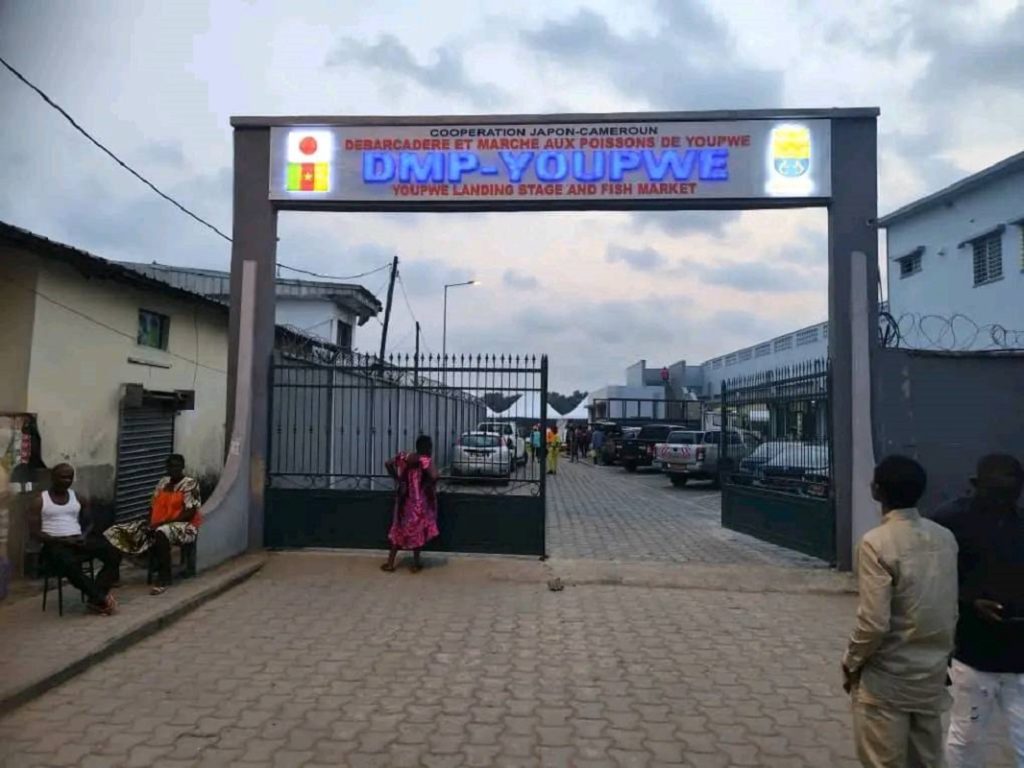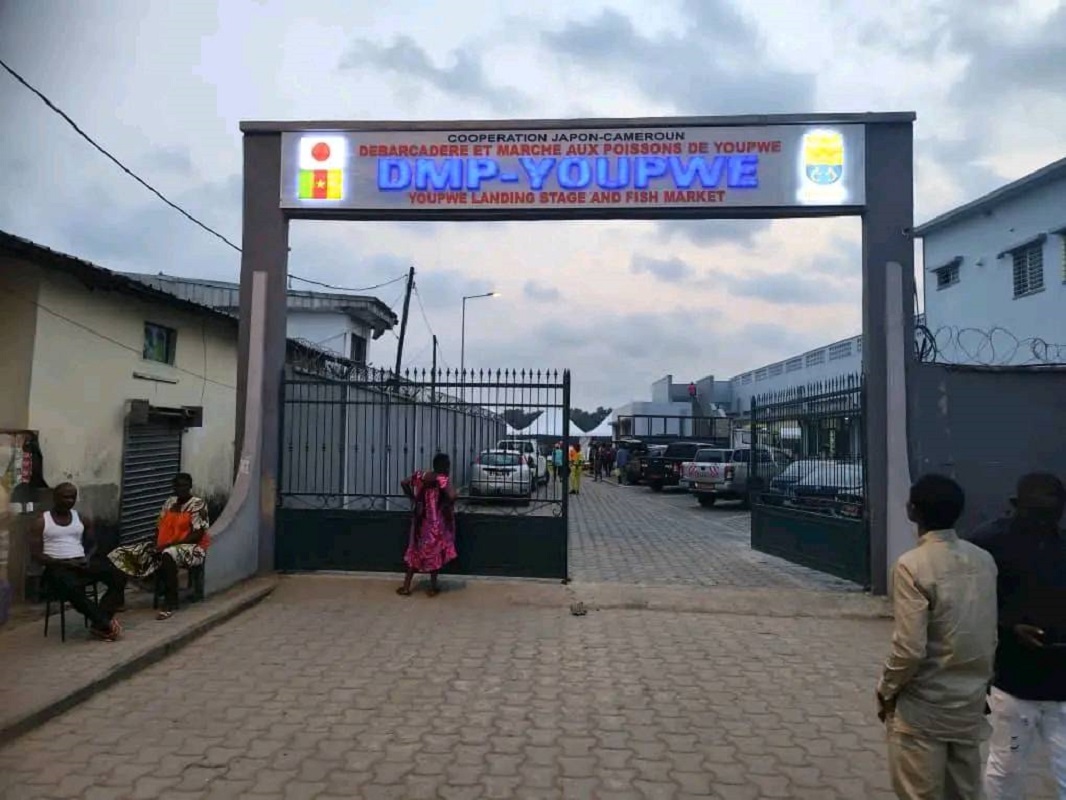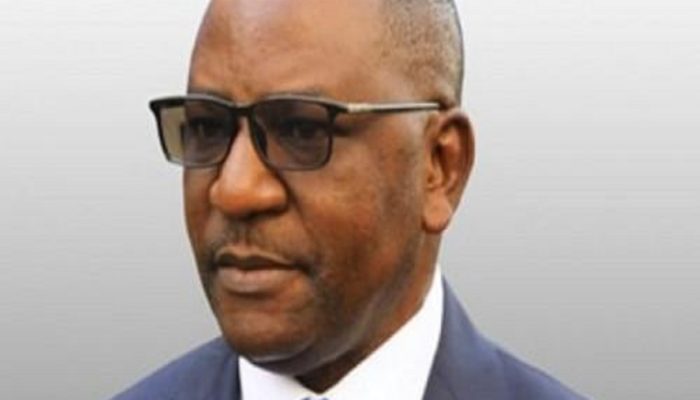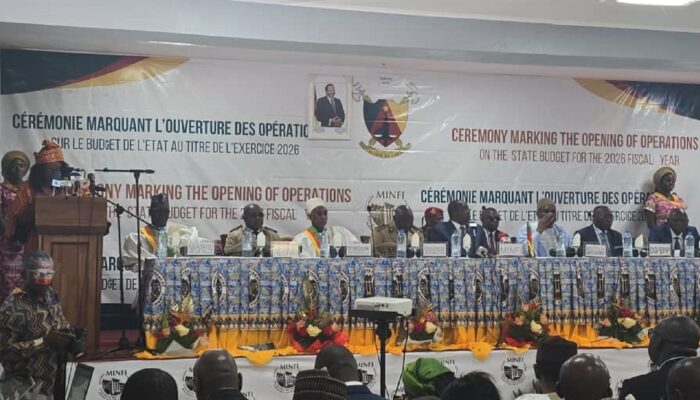Surrounded by all the notables, economic and political elites of the Western region, the Prime Minister proceeded with the official opening of this infrastructure intended for the development of economic activity in this part of the country.
The Prime Minister in fact unveiled the inaugural plaque of the Youpwe landing stage and fish market in the presence of the mayor of the city of Douala, Roger Mbassa Ndine, as well as the Japanese ambassador to Cameroon.
Indeed, the Youpwe landing stage and fish market is a gift from the Japanese people as a symbol of friendship and cooperation between Japan and Cameroon. The Youpwe fish market is an infrastructure that was fully financed by Japan to the tune of 7 billion FCFA non-refundable

In accordance with international standards and norms, the Youpwè fish market will contribute to improving the working conditions of different actors involved in the value chains of fishery products.
“This landing stage will allow Cameroon to strengthen its food security while conquering the markets of the sub-region,” assured Joseph Dion Ngute, head of government, during the inauguration ceremony last Friday. This achievement, the actors hope, will stimulate the trade of fishery products throughout the region, thus contributing to boosting the local economy and raising the quality standards of the sector.
This infrastructure, financed to the tune of 7.2 billion FCFA by the Japan International Corporation Agency (JICA), symbolizes a significant step towards the modernization of maritime fisheries in Cameroon. Built on a plot of 6,100 square meters, the complex promises to improve the working conditions of the Youpwé fishing community and the quality of the fish offered to consumers. Designed to accommodate up to 70 pirogues simultaneously. Its creation illustrates Cameroon’s desire to strengthen food security while boosting its fisheries sector to meet current and future challenges.
Equipped with a management equipped with office furniture, the Youpwé Landing and Fish Market includes various facilities: fish weighing stations, equipment for transporting pallets and fish, temperature measurement devices and laboratories for dissecting samples for analysis purposes. Christiane Laure Wondje Ntonè, director of the site, emphasizes that all the infrastructures have been designed to ensure the comfort of traders and customers. In addition, the marketing and distribution circuit will be strictly controlled. A fish inspection service, supported by a health inspection from the Ministry of Fisheries and Animal Industries (Minepia), will guarantee the impeccable quality of the products.
The site also includes a cold store for the conservation of fish products, a waste depot, and a wastewater treatment center. A restaurant area completes these modern facilities. According to the Gulf of Guinea Regional Fisheries Commission, this new infrastructure represents a major step forward, making it possible to significantly reduce post-catch losses due to the lack of suitable equipment. This project embodies the determination of the Cameroonian public authorities to strengthen food security and improve logistical efficiency in the fisheries sector.

The Japanese Ambassador to Cameroon, His Excellency Kentaro Minami, who was present at the event, expressed his satisfaction: “We are happy that Japan has contributed to the realization of this project in a country where approximately 300,000 tons of fish come from artisanal fishing each year.” The landing stage is part of the import-substitution ambition of Cameroon’s National Development Strategy 2020-2030 (SND30). It will not only facilitate the connection with the commune of Douala 6th, but will also improve the equipment and infrastructure necessary for the production, processing, conservation and marketing of fishery products.
The infrastructure should help increase production, modernize the marketing system and the health conditions of fish products. This should reduce post-catch losses (15% in Cameroon, according to the Gulf of Guinea Regional Fisheries Commission) caused by the lack of conservation equipment. And already fish sellers, who say they earn between 200,000 and 1.4 million CFA francs per year, are hoping to increase their income.
According to the National Institute of Statistics (INS), imports of frozen sea fish into Cameroon reached 189,755 tonnes in 2021, an annual increase of 1.8%. The country thus spent 134.3 billion FCFA (+3.5%), while it is credited with approximately 400 km of coastline renowned for its fish, on which mainly foreign fishermen operate, supplying commercial circuits serving their own countries.
It was this Thursday, December 26, 2024, early in the evening that Prime Minister Joseph Dion Ngute arrived in Douala. The head of government was welcomed at the international airport by the governor of Littoral, Samuel Dieudonné Ivaha Diboua.
Among the authorities who welcomed the Prime Minister upon his arrival in Douala, there were also the President of the Littoral Regional Council, the Honorable Polycarpe Banlog; the Mayor of the city of Douala, Dr Roger Mbassa Ndinè; the Senior Divisional officer of Wouri, Sylyac Marie Mvogo.






